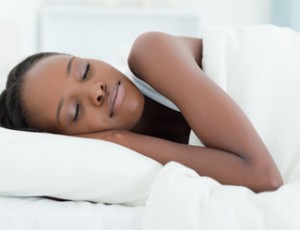We’re used to thinking about being healthy while we’re awake, but what happens while we’re asleep also affects our health. Sleep apnea is a common condition that harms health by disrupting sleep. To learn about this condition, I spoke with Dr. Hal Alpert, M.D., a board-certified sleep medicine specialist attached to both Nocturnal Sleep Medical Group (in Washington Heights and Jackson Heights) and to BetterSleep New York (in the Bronx).
Beane: What is sleep apnea?
Alpert: When you sleep, your brain sends less stimulation to the muscles that keep your airway open. In people with sleep apnea, the airway becomes too narrow, blocking the airflow. When that happens, your brain wakes you up so you can breathe properly.
What health problems does sleep apnea cause?
With sleep apnea, your brain wakes you by releasing hormones that cause medical problems. Sleep apnea can make your heart speed up and cause irregular heart rhythms and hypertension, or high blood pressure—in the lungs and throughout the body. It can elevate your blood sugar and can eventually cause diabetes. It can even increase the risk of heart attack and stroke. That’s why it’s very important to diagnose sleep apnea and treat it. Additionally, your brain needs uninterrupted sleep to be restored. If you don’t get that, the next day you’ll function poorly, which can affect your quality of life.
How common is sleep apnea?
Worldwide, there are approximately 100 million people with sleep apnea, 20 million of whom live in the United States. In general, sleep apnea accompanied by daytime sleepiness affects about 4 percent of men and 2 percent of women. Among middle-aged people, it affects approximately 9 percent of women and 24 percent of men. Approximately 90 percent of those affected are undiagnosed.
What are the symptoms of sleep apnea?
Loud, disruptive snoring is a common symptom. If you have excessive daytime sleepiness despite sleeping throughout the night, sleep apnea might be the culprit. Other common symptoms are waking from choking or gasping episodes, or waking up with a dry or sore throat. If your bed partner observes pauses in your breathing while you sleep, this is also very suggestive of sleep apnea. If you have these symptoms, you should definitely be evaluated.
What treatment options are there available for sleep apnea?
The standard treatment for sleep apnea is the nasal CPAP mask, a device that delivers air through the nose. If you have mild to moderate sleep apnea or can’t tolerate the CPAP mask, other options include the use of a dental appliance or surgery.
What are some common questions that your patients ask about their treatment?
A common question is whether they will need to use the CPAP machine for the rest of their lives. The answer is, if you have significant weight loss, you need to be re-evaluated. Weight loss can make a significant improvement in sleep apnea and can even cure it.





